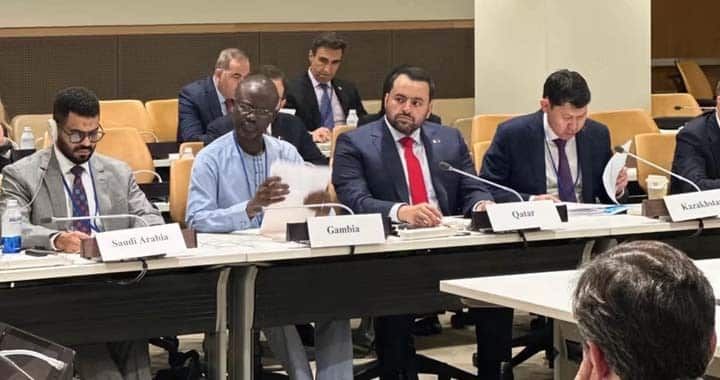Qatar has reiterated its commitment to diplomatic engagement with the Taliban and support for the Afghan people at a time when the United States is reassessing its Afghanistan policy, and the UN and European diplomats are warning of the Islamic State Khorasan Province (IS-KP) exploiting the mass return of Afghan migrants for recruitment.
Speaking at a high-level session of the Organisation of Islamic Cooperation (OIC) foreign ministers on the sidelines of the 80th United Nations General Assembly, Mohammed bin Abdulaziz Al-Khulaifi, Adviser to Qatar’s Ministry of Foreign Affairs, said Doha remains ready to facilitate constructive engagement between the Taliban and the international community.
Al-Khulaifi highlighted the urgent need for a unified international response to Afghanistan’s humanitarian crisis, stressing that the country’s current “sensitive circumstances” demand long-term support, both humanitarian and developmental.
“Afghanistan’s humanitarian, economic, and political challenges require a collective commitment to preserve stability,” he said, reaffirming Qatar’s continued assistance in addressing those needs.
Qatar’s Expanding Diplomatic Role
Qatar has emerged as a pivotal diplomatic player in Afghan affairs, hosting the Taliban’s political office and facilitating negotiations with both the United States and the former Afghan government. The Gulf state is widely seen as a key intermediary between the Taliban and the West, especially at a time when formal recognition remains off the table.
Doha’s quiet diplomacy has remained consistent, even as global powers struggle with the Taliban’s hardline policies, ongoing human rights violations, and growing threats posed by the very militant offshoots such as IS-KP present, and operating in, or outside, Afghanistan.
Context: Recruitment Risks and Regional Instability
Qatar’s reaffirmed role comes amid growing international alarm over the impact of mass deportations of Afghan refugees from Pakistan and Iran. Security experts and UN officials have warned that returnees, many impoverished and displaced, are highly vulnerable to recruitment by IS-KP and other extremist groups operating in Afghanistan.
The UNHCR estimates that as many as four million Afghans could return to the country by the end of 2025, most with little access to jobs, housing, or basic services, conditions that militant groups are eager to exploit.
The UN and European diplomats have also flagged concerns that IS-KP is actively expanding its influence across the region, with recent attacks linked to the group in Russia, Iran, and Pakistan.
Qatar’s diplomatic messaging appears aimed at bridging this security vacuum, encouraging regional coordination while maintaining channels of dialogue with the de facto rulers in Kabul.





